CBD for Anxiety and OCD: Relief Insights
The journey towards mental health and well-being often involves exploring various treatment options, and in recent years, cbd for anxiety and ocd has stepped into the spotlight. Cannabidiol, popularly known as CBD, is derived from marijuana and hemp plants, boasting a unique pharmacologic profile that promises to aid in managing anxiety and ocd with cbd without the psychoactive aftermath associated with other cannabinoids.
Despite a plethora of anecdotal success stories, the Food and Drug Administration (FDA) remains reserved, having not approved cbd products for anxiety and ocd for medical use. The growing body of pre-clinical research and user reports, however, continues to outline CBD's therapeutic potential, suggesting a nuanced look at its role in mental health management is both timely and necessary.
As CBD gains traction, consumers seeking alternative relief from anxiety and OCD are faced with an array of products and dosages. The quest for clarity in the efficacy and safety of these options is paramount as individuals navigate the complexities of mental health disorders. An informed approach to using CBD — backed by scientific inquiry and tailored to personal health needs — remains the guiding principle in this evolving conversation.
Key Takeaways
- Exploring CBD's potential as a natural remedy for anxiety and OCD requires a careful examination of both scientific evidence and personal health goals.
- The lack of FDA approval for CBD as a treatment for anxiety and OCD underscores the importance of rigorously controlled research.
- Determining the safety and efficacy of cbd products for anxiety and ocd involves navigating a market yet to be fully regulated and standardized.
- Reports from users and preliminary studies suggest that CBD may provide symptom relief, emphasizing the need for more definitive clinical trials.
- An individualized approach to managing anxiety and ocd with cbd is crucial, taking into account dosage, product quality, and consistency.
Understanding CBD: A Natural Anxiolytic
As conversations around mental health advance, many individuals seek natural remedies for anxiety and OCD. CBD, or cannabidiol, emerges within the wellness sphere as a notable component with potential anxiolytic effects. As we delve into the pharmacology of CBD, it is crucial to understand the relationship between this natural substance and its influence on mental health, as well as acknowledge its lawful circulation within the medical community.
The Pharmacology of Cannabidiol
With a broad pharmacologic profile, CBD is celebrated for more than its neuroprotective and anti-inflammatory qualities. It has garnered attention primarily for its anxiolytic properties, holding a special place among benefits of cbd for anxiety and ocd. Unlike THC, or delta-9-tetrahydrocannabinol, CBD does not exhibit psychoactive properties, making it appealing to those seeking relief without the high associated with marijuana. CBD's efficacy stems from its interaction with the body's endocannabinoid system, a widespread neuromodulatory system that plays an essential role in central nervous system development and the response to endogenous and environmental assaults.
Legal Status and FDA Considerations
In the rapidly unfolding narrative of CBD as a therapeutic agent, its legal status has also come to the fore. Despite the wide array of CBD-infused products lining the shelves, the FDA has yet to grant its approval for the use of CBD as a sanctioned treatment for anxiety or OCD. The accuracy of CBD content in marketed products is a focal point for regulatory scrutiny. In safeguarding public health, the FDA has taken action against companies marketing products with unsubstantiated therapeutic claims. Epidiolex stands as the sole CBD product officially approved by the FDA, prescribed to treat rare and severe forms of epilepsy.
Despite these legal footholds, the pursuit of using cbd for anxiety and ocd continues amongst researchers and consumers alike. With legal developments expected to evolve in tandem with scientific discovery, the significance of CBD's place within natural remedy options for complex mental health conditions is poised for further exploration and potentially, greater acceptance.
CBD’s Efficacy in Generalized Anxiety and Social Phobias
Recent research has shed light on the anxiolytic potential of cannabidiol (CBD) in treating conditions such as generalized anxiety and social phobias. Noteworthy in the array of studies is the groundbreaking 2011 trial, where CBD was used to address social anxiety disorder (SAD). During a simulated public speaking test (SPST), which is commonly deployed to invoke anxiety symptoms, participants receiving CBD exhibited a significant reduction in anxiety levels, aligning their responses with those of control subjects without SAD.
This initial evidence bolstered further investigation into using cbd for anxiety and ocd, leading to a pivotal 2019 study. Here, it was observed that a 300 milligram dose of CBD notably curbed anxiety during the SPST. Interestingly, this study also revealed that dosage played a critical role in the efficacy of CBD; both lower and higher doses than 300 milligrams did not yield the same anxiolytic effect. This dosage-sensitive response emphasizes the need for more nuanced research into how cbd helps with anxiety and ocd.
Amidst a growing interest in alternative treatments for anxiety and OCD, these findings fortify the argument that CBD may be an effective natural remedy, particularly for those struggling with generalized anxiety and the debilitating discomfort of social phobias. The landmark trials depict a promising trajectory for CBD in this therapeutic niche, galvanizing a research-rich pursuit of knowledge to further confirm and expand upon these results.
While there is still a journey ahead in fully endorsing CBD as a medical treatment, the current evidence undeniably contributes to the larger narrative of mental health management. With the continuation of rigorous scientific validation, CBD's role in alleviating the burdens of anxiety disorders might soon transition from anecdotal praise to an established cornerstone in the canon of effective treatments.
Optimal CBD Dosages for Anxiety Management
Understanding the right cbd dosages for anxiety and ocd is key to achieving the best therapeutic outcomes. With research suggesting diverse dosage efficacies, it is clear that individual needs play a critical role when selecting the appropriate amount of cbd oil for anxiety and ocd. Let's explore the findings from various studies to better comprehend optimal dosing strategies.
| Dosage | Study Year | Anxiety Type | Effectiveness |
|---|---|---|---|
| 600 mg | 2011 | Generalized Social Anxiety Disorder (SAD) | Significant reduction in anxiety levels |
| 300 mg | 2019 | Simulated Public Speaking Test (SPST) | Most effective dose for reducing anxiety |
| 150 mg | 2019 | Simulated Public Speaking Test (SPST) | Less effective than 300 mg |
| 25 to 75 mg daily | 2019 | Generalized Anxiety | Decreased anxiety levels within the first month |
The table showcases the variable nature of cbd dosages for anxiety and ocd, illuminating the need for personalized treatment plans. As researchers underscore the importance of this variability, it is recommended that individuals start with lower doses and gradually increase until the desired effects are achieved. Consistent monitoring is crucial to identifying the most beneficial dosage.
For those considering cbd oil for anxiety and ocd, these dosing insights are invaluable. As the landscape of CBD research is perpetually advancing, users are encouraged to stay informed and consult healthcare professionals when integrating CBD into their wellness routines.
The Role of CBD in Treating Depression Symptoms
The exploration into the benefits of CBD for anxiety and OCD has recently extended into treating depression, another facet of mental health disorders often intertwined with anxiety symptoms. In a 2020 clinical study, patients presenting with a range of conditions, including those experiencing mental health-related symptoms, displayed a remarkable improvement in symptoms of depression after using CBD for treating anxiety and OCD. This promising outcome spotlights the adaptability and expansive potential of CBD in the realm of natural therapeutics for mental health.
As depression can co-occur with anxiety, uncovering the holistic applications of CBD could lead to more comprehensive treatment plans for those suffering from both conditions. While acknowledging the benefits of CBD for anxiety and OCD, the antidepressant qualities of CBD also warrant attention, further emphasizing its dual-action capabilities. By aiding in the relief of depression symptoms, CBD reinforces its position as a significant contributor to the constellation of natural mental health remedies.
Diving deeper into the intricacies of CBD's multifunctional role in mental health, we uncover its potential to act on the body's endocannabinoid system, known for its regulation of emotional responses and mood stability. This brings a heightened level of interest in the understanding of how CBD helps with anxiety and OCD and its emerging impact on depression, opening avenues for future research and application.
To this end, attention to detailed clinical trials and extensive research is paramount to firmly establish CBD as an effective tool in battling the pervasive challenges of mental health disorders, including depression. As we continue to navigate through the complexities of these conditions and their management, the therapeutic landscape may be reshaped by the potential broader application of CBD. With careful consideration and responsible implementation, CBD's utilization in treating depression, alongside anxiety and OCD, holds the promise of enhancing treatment efficacy and patient well-being.
Supporting Mental Health: CBD for Anxiety and OCD
Advancements in mental health treatments have introduced promising avenues for individuals facing the burdens of anxiety and OCD. Among these, managing anxiety and ocd with cbd has become an increasingly popular topic of discussion and research. CBD, a non-psychoactive component of cannabis, offers a contrasting experience to its counterpart, THC, igniting hope for a complementary therapy that sidesteps the intoxicating effects that some patients wish to avoid.
Differentiating Between CBD and THC Effects
Recognizing the distinct attributes of CBD compared to THC is fundamental for healthcare practitioners and patients alike. Unlike THC, CBD does not induce the mind-altering experiences typically associated with cannabis, making it an appealing alternative for alleviating anxiety and OCD symptoms. Its non-psychoactive nature allows for therapeutic use that does not interfere with cognitive functions, thus paving the way for a broader acceptance of cbd products for anxiety and ocd.
Integrating CBD into Traditional Therapy
As the body of evidence grows, the integration of CBD into existing treatment protocols presents an expansive opportunity for enhancing outcomes. Certain studies point to CBD's potential in creating the “entourage effect,” especially when paired with THC. This synergy may unlock a more profound quality of relief for patients. Moreover, the prospect of CBD as an augmentative element in established therapies, particularly cognitive-behavioral therapy (CBT) and exposure therapy, continues to captivate the medical community's interest in its value within a comprehensive treatment plan.
Incorporating cbd products for anxiety and ocd into therapy regimens thus far has reflected promising results. Continued research and clinical trials are essential to fully comprehend the scope and mechanisms through which CBD might bolster traditional therapies. But, the current trajectory suggests that a multifaceted approach to treatment, inclusive of CBD, could reshape the future of mental health management.
Pros and Cons of Using CBD Oil for Anxiety and OCD
As the conversation surrounding cbd for anxiety and ocd grows, it's important to critically evaluate the advantages and potential drawbacks. While some individuals herald CBD as a natural alternative to pharmaceuticals, others point to the lack of comprehensive regulatory oversight and the need for more conclusive scientific studies. Here, we will dissect both the benefits and the concerns associated with CBD oil as a therapeutic option for these conditions.
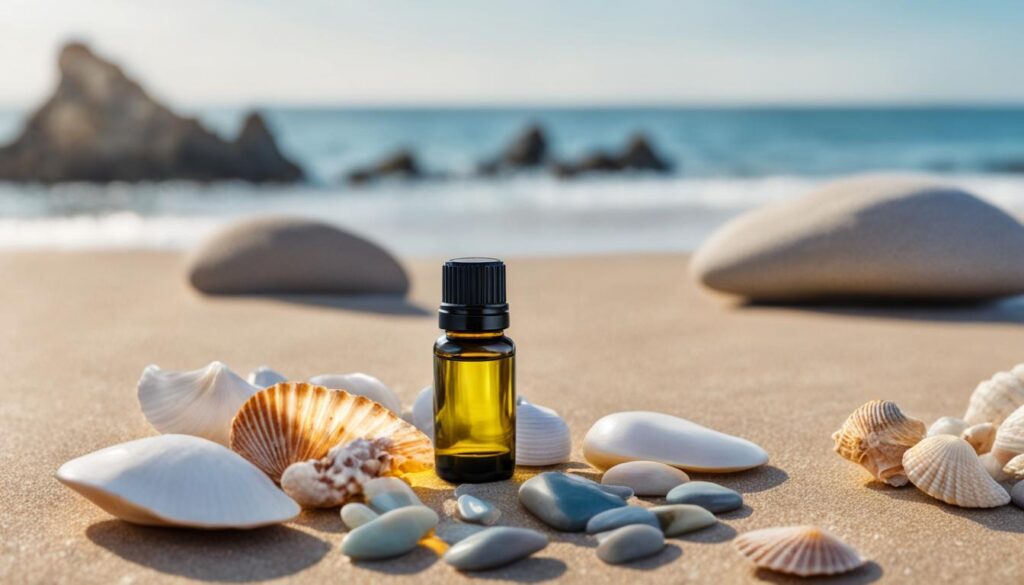
Potential Side Effects and Risks
Though many individuals turn to CBD as one of the natural remedies for anxiety and OCD, the substance isn't without its possible risks. Research into the side effects of CBD oil is still nascent, but current findings suggest most users experience relief without severe adverse reactions. That said, reports have noted cases of mild side effects such as dizziness, dry mouth, and changes in mood or appetite. The decision to use CBD oil should be approached with a consideration of these potential side effects and an understanding that the long-term risks are still being studied.
Comparing CBD with Conventional Treatments
In comparing cbd for anxiety and ocd with established pharmacological treatments, one notes a stark contrast in the realm of safety testing and regulation. Conventional medications for these conditions are typically subjected to rigorous trials and FDA scrutiny before reaching the public. Conversely, the regulatory framework surrounding CBD products remains less stringent, leaving much to user discretion and independent research. As more scientific evidence comes to light, a clearer comparison between CBD and traditional treatments will be crucial in validating CBD's place in the remedy roster.
Exploring Natural Remedies: CBD Products for Anxiety and OCD
In the quest for managing mental health, a growing number of people are turning to cbd for anxiety and ocd. The allure of natural alternatives has thrust a variety of cbd products for anxiety and ocd into the limelight. With options ranging from soothing oils to discreet edibles, the market has responded with an array of forms to suit different preferences and lifestyles.
Yet amidst this burgeoning availability, the landscape is clouded by concerns over effectiveness and safety. Given the nascent state of regulation, consumers and healthcare providers alike are tasked with discerning which products hold therapeutic value. A central dilemma lies in the dosage; without standardized measures, finding the right amount becomes a game of educated guesswork.
To navigate this, scrupulous examination of CBD products is paramount. Here's what users should look for:
- A clear indication of cbd content and purity
- Transparency about sourcing and manufacturing
- Evidence of third-party testing
- Reputable brand histories and consumer reviews
The potential of cbd for anxiety and ocd cannot be understated. As research pushes forward, it's essential that every claim is anchored in scientific proof, fostering a safe and reliable environment for those in search of relief. As consumers deepen their understanding of cbd products, they pave the way to a more informed use, potentially unlocking the benefits this natural remedy can offer.
CBD and PTSD: Insights into Complex Anxiety Disorders
The exploration of cbd for anxiety and ocd has broadened to encompass the treatment of complex anxiety disorders such as Post-Traumatic Stress Disorder (PTSD). Initial findings from small-scale studies have highlighted the potential of CBD to ease the symptoms that define PTSD, carving out a new role for cannabinoids in mental health care. While the intricate dance of therapeutic interventions for PTSD continues to be fine-tuned, CBD's entrance signals a fresh, holistic approach to battling this debilitating condition.
The Synergistic Effects of CBD and THC: Addressing PTSD
Within the context of PTSD, the combination of CBD with THC emerges as a particularly compelling treatment option. The interaction between the two compounds may lead to the ‘entourage effect', which can amplify the efficacy of CBD's therapeutic properties. This synchronization not only tempers the high induced by THC but could also enhance CBD's capacity to stabilize mood and ameliorate trauma-related symptoms.
Advancements in CBD-Infused Therapy Sessions
Advancing beyond traditional therapy, CBD has started to make its mark in sessions aimed at reducing fear responses through methods like exposure therapy. In integrating cbd products for anxiety and ocd into such treatments, there is potential to reshape the strategy behind therapeutic practices, possibly rendering them more effective. For many, the amalgamation of CBD into these therapeutic sessions could signify a leap forward in managing PTSD and concurrent anxiety disorders.
CBD for Anxiety and OCD: Patient Case Studies
Anecdotal evidence has long been a source of insight into the potential healing properties of substances before scientific validation catches up. In the case of CBD for anxiety and OCD, a growing compilement of personal accounts has begun painting a vivid picture of its therapeutic impact. While these case studies offer invaluable perspectives, they also underscore the need for larger-scale, more rigorous research to affirm the benefits of CBD for anxiety and OCD and to develop standardized treatment protocols.
Case studies involve using CBD for anxiety and OCD often detail significant reductions in anxiety-related symptoms, improved daily functioning, and overall enhanced quality of life for sufferers. However, it's crucial to note that such narrative reports, although compelling, do not equate to clinical evidence. They do, however, provide a narrative arc of success and struggle that can be informative for others considering CBD as an option for their treatment plans.

Here are some documented experiences from patients who have incorporated CBD into their mental health regimen:
| Patient | Anxiety/OCD Severity Prior | CBD Dosage | Reported Outcome |
|---|---|---|---|
| Patient A | Moderate OCD | 45 mg daily | Noticeable decrease in compulsive behaviors |
| Patient B | Severe Generalized Anxiety | 60 mg daily | Reduced frequency of anxiety attacks |
| Patient C | Moderate Social Anxiety | 30 mg before social events | Improved social interactions and reduced avoidance |
| Patient D | High Anxiety and OCD | Variable; titrated to effect | Enhanced mood stability and daily function |
It should be emphasized that these experiences, while inspiring, cannot be universally expected. Each individual's encounter with CBD is distinct, influenced by factors such as biochemistry, severity of symptoms, and concomitant treatments. Consequently, the medical community continues to call for scientifically grounded, placebo-controlled studies to verify the anecdotal claims of CBD's efficacy and to clear the path for its integration into conventional therapeutic frameworks.
As interest in using CBD for anxiety and OCD grows, these narratives remain a crucial part of the broader discussion, contributing to a deeper understanding of the personal impact of CBD and highlighting areas for focused research. Patient case studies may not be definitive evidence, but they can provide guidance and hope for those seeking alternative treatments, and they ultimately lay the groundwork for future scientific exploration.
How CBD Helps with Anxiety and OCD: Mechanisms of Action
Grasping the intricate ways in which cbd for anxiety and ocd exerts its effects is crucial in championing its application as a therapeutic option. The physiological scaffolding supporting CBD's potential benefits lies in its multifaceted interaction with the body's endocannabinoid system. This system, known to play pivotal roles in modulating mood and anxiety levels, opens pathways that CBD taps into, potentially influencing psychological well-being.
One of the primary conduits through which how cbd helps with anxiety and ocd is believed to flow is through the serotonin receptors. Traditional anti-anxiety medications typically target these receptors, and evidence suggests CBD may operate in a similar manner. Yet, the lack of intoxication with CBD use marks a vital distinction, offering an attractive profile for those seeking alternatives to conventional pharmaceuticals.
Another layer of action is CBD's interaction with other neurological pathways. It may modulate receptors responsible for regulating fear and panic responses, thus presenting a possibility of therapeutic use for those grappling with anxiety and OCD.
Understanding these mechanisms fortifies not only the credibility of CBD's therapeutic potential but also enables customization of treatments:
- Personalization of dosage based on individual responses
- Tailoring of CBD treatments to work complementary to existing therapies
- Adjustment of CBD types (isolates vs. full spectrum) to meet specific therapy goals
While the FDA has not approved CBD as a medication for anxiety or OCD, studies and clinical trials have indeed shown that CBD can substantially diminish anxiety symptoms, which can be particularly meaningful for those who have not found relief through traditional remedies.
The enthusiasm surrounding CBD hinges on continued research endeavors to authenticate and elucidate how cbd helps with anxiety and ocd. With reinforced understanding, the potential for CBD to contribute significantly to mental health treatment becomes not only conceivable but also actionable.
Personalizing Treatment: CBD Dosages for Anxiety and OCD
Embarking on the journey of determining cbd dosages for anxiety and ocd is shaped by individual experiences and responses. The approach requires careful consideration, as what works for one person may differ significantly from another's needs. Through trial and responsiveness, together with professional guidance, one can calibrate the exact dosage that how cbd helps with anxiety and ocd most effectively for them.
Finding the Right Dosage: A Step-by-Step Guide
Initiating treatment with CBD begins with establishing a baseline from which to evaluate its effects. Starting low and going slow is the universally advised protocol, enabling users to adjust to the substance and monitor its impact on anxiety and OCD symptoms. This method ensures sensitivity to the body's cues and reduces the risk of potential side effects.
- Start with a small dosage, such as 25mg, and observe the effects over several days.
- If no significant changes are noticed, incrementally increase the dose by small amounts.
- Keep a journal to document dosage changes and impacts on anxiety and OCD symptoms.
- Consult with a healthcare provider regularly to discuss observations and adjust accordingly.
By following this personalized approach, individuals can home in on the dosage that provides the right balance between therapeutic benefit and minimal side effects.
Monitoring Response and Adjusting CBD Intake
Close observation is key to adjusting CBD intake for anxiety and OCD management. Users should track their symptoms and any potential side effects, using these as indicators to refine their dosage. It's not just about frequency and quantity; the quality of CBD taken also plays a significant role in the dosage's effectiveness.
| Week | Dosage | User Response | Adjustments |
|---|---|---|---|
| 1-2 | 25mg/day | Initial familiarization; no change | Increase to 35mg/day |
| 3-4 | 35mg/day | Minimal improvement in anxiety | Increase to 50mg/day |
| 5-6 | 50mg/day | Noticeable anxiety reduction | Maintain current dosage |
| 7-8 | 50mg/day | Consistent anxiety and OCD management | Continue monitoring |
Adjustments should always be executed under medical supervision. Whether increasing or decreasing the amount of CBD, a well-documented approach provides valuable insights into how cbd helps with anxiety and ocd on a case-by-case basis.
Comparative Studies: CBD vs. Traditional Medications for Anxiety
The exploration into the benefits of cbd for anxiety and ocd is yielding intriguing comparisons to traditional medications typically prescribed for these conditions. Unlike conventional treatments, CBD has been associated with a lower risk of serious side effects, which is a considerable advantage for long-term management strategies. However, substantial evidence through clinical trials is still needed to confidently position CBD alongside, or in place of, established anxiety medications.
In a landscape where pharmacological interventions for anxiety and OCD are well-established, the introduction of CBD as a viable treatment option is gaining momentum. While findings from ongoing research are promising, the depth of clinical data supporting traditional medications is vastly more extensive. This discrepancy highlights a critical need for more extensive, controlled studies examining how cbd helps with anxiety and ocd compared to traditional pharmaceutical approaches.
| Treatment Approach | Characteristics | Efficacy for Anxiety/OCD | Side Effects Profile |
|---|---|---|---|
| Traditional Medications | Well-researched, FDA-approved | Highly effective with established protocols | Can include dependency, withdrawal, and other serious side effects |
| CBD | Natural, non-psychoactive | Initial studies show promise, particularly with SAD and PTSD | Typically mild side effects reported, long-term effects under study |
Ultimately, the objective is to identify treatments that provide the most benefit with the least harm to the patient. The benefits of cbd for anxiety and ocd cannot be ignored, especially for individuals seeking gentler, more naturalistic approaches to their mental health care. The way forward involves meticulous research, backed by solid scientific methodology, to fully understand the place of CBD in anxiety and OCD treatment paradigms.
Patients and healthcare providers must weigh the pros and cons, considering the potential for CBD to offer relief as part of a comprehensive treatment program. The ongoing comparison between these disparate approaches serves as a testimony to the complexity of anxiety disorders and the nuanced demands they impose on the quest for optimal mental health treatments.
For an accurate assessment of CBD's potential, the medical community and regulatory bodies are called upon to prioritize and support further research. This will solidify our understanding of cbd for treating anxiety and ocd and shape how it can be integrated responsibly and effectively into mental health care practices.
Exploring the Therapeutic Landscape: CBD’s Place in Anxiety and OCD Management
The evolving terrain of mental health treatment has welcomed a plethora of options, and among these is the enticing possibility of managing anxiety and OCD with CBD. Grounded in scientific inquiry and bolstered by a myriad of case studies, CBD stands at the frontier of potential natural remedies for anxiety and OCD. However, as we delve into the intricate web of its application, there are essential considerations and challenges that both users and healthcare professionals must reckon with.
The versatility of using CBD for anxiety and OCD extends beyond its anecdotal praise; it is anchored in the promising results of various studies. Yet, we tread cautiously, mindful of the legal ambiguities that currently envelope CBD, recognizing that its market is ripe with products yet to be regulated with the rigor of conventional pharmaceuticals. This necessitates an ongoing commitment to vigilance and informed decision-making within the healthcare community.
Determining the optimal dosages for individuals, an integral component of maximizing therapeutic outcomes, remains an area teeming with questions and a thirst for standardized guidelines. While low doses have been shown to reduce anxiety within the first month for most users, the discovery of a ‘sweet spot' dose that is both effective and free of adverse effects has proven elusive, underscoring the need for personalized treatment plans.
Within the realm of mental health, the integration of CBD with existing treatment strategies presents both potential and complexity. Whether CBD is augmenting the effects of cognitive-behavioral therapy, enhancing exposure therapy outcomes, or serving as a standalone remedy, the medical jury is still out. The path forward is clear: Definitive clinical research must continue to be a priority if CBD is to become a mainstay in anxiety and OCD management protocols.
Standing at the crossroads of potential and proven treatments, CBD captivates with its therapeutic promise. For those mapping out their mental health journeys, the narrative of CBD is interwoven with the fibers of scientific curiosity and cautious optimism. Whether it will emerge as a beacon for those navigating the dark waters of anxiety and OCD, only time—and further research—will tell.
Resources and Further Reading
As the potential therapeutic benefits of CBD, particularly as cbd products for anxiety and ocd continue to draw interest, a wealth of resources has become available for those looking to deepen their understanding. Scientific journals and research articles provide a plethora of studies, while databases of clinical trials offer up-to-date information on the latest investigations into CBD's effects on mental health. Many of these publications delve into the nuances of CBD as one of the emerging natural remedies for anxiety and ocd, offering a scientific basis for their efficacy.
Trusted organizations, such as the American Psychological Association, put forth comprehensive reviews and recommendations on the use of CBD, adding a level of credibility to the ongoing conversation. Likewise, the World Health Organization has become involved, issuing critical review reports that assess the safety, side effects, and potential of CBD as a therapeutic substance. Both entities are invaluable in providing guidance through the intricate landscape of mental health treatments.
To remain informed and make educated decisions about incorporating CBD into their health regimen, individuals are encouraged to regularly consult the latest findings and advice. The importance of sifting through the current research, staying aware of any changes in the legal status of CBD, and noting advisories from public health authorities cannot be overstressed for those considering cbd products for anxiety and ocd as part of their treatment plan.
FAQ
What is CBD and how might it help with anxiety and OCD?
CBD, or cannabidiol, is a natural compound found in cannabis plants. It is known for its anxiolytic (anxiety-reducing) properties and interacts with the body's endocannabinoid system. Unlike THC, CBD does not produce a psychoactive effect, which makes it an attractive option for people seeking relief from anxiety and OCD without the high associated with marijuana.
Are CBD products for anxiety and OCD legal, and have they been approved by the FDA?
The legal status of CBD varies depending on jurisdiction. In the United States, CBD is legal at the federal level as long as it contains less than 0.3% THC. However, the FDA has not approved any CBD products for the treatment of anxiety or OCD, except for Epidiolex, which is prescribed for epilepsy.
How has CBD been shown to help with generalized anxiety and social phobias?
Several small studies have suggested that CBD can reduce anxiety levels, especially in social phobias. A trial in 2011 found that CBD decreased anxiety in participants with Social Anxiety Disorder during a simulated public speaking test. Such findings support the anxiolytic potential of CBD.
What are the optimal dosages of CBD for managing anxiety?
Optimal dosages of CBD for anxiety can vary depending on the individual. Studies have examined doses ranging from 25 to 600 milligrams. It's usually recommended to start with a low dose and adjust based on the effects and guidance from healthcare professionals.
Can CBD also treat depression symptoms?
Some studies and anecdotal evidence have suggested that CBD could also help alleviate symptoms of depression. This could be particularly beneficial as depression and anxiety often co-occur.
How do the effects of CBD compare to those of THC?
THC is the main psychoactive compound in cannabis that causes the high. CBD, on the other hand, does not have this psychoactive effect. Some evidence suggests that CBD and THC may work better together in what is known as the “entourage effect,” enhancing the therapeutic properties of each other.
What are the potential side effects and risks associated with using CBD?
CBD is generally considered to have a good safety profile, but some people may experience side effects like tiredness, diarrhea, or changes in appetite. It is important to discuss with a healthcare provider before using CBD, especially if you are taking other medications.
How might CBD integrate with traditional therapy methods for anxiety and OCD?
CBD is being explored as an adjunct to traditional therapies such as cognitive-behavioral therapy (CBT). While research is ongoing, there is potential for CBD to enhance the effects of these treatments, particularly by reducing anxiety and facilitating engagement with the therapeutic process.
Can CBD be useful in treating PTSD and other complex anxiety disorders?
Preliminary research has suggested that CBD could be beneficial in reducing PTSD symptoms, particularly when used in combination with traditional psychiatric care or along with THC to leverage the entourage effect.
Are there any case studies supporting the use of CBD for anxiety and OCD?
Yes, there are case studies and anecdotal reports that suggest CBD might help alleviate symptoms of anxiety and OCD. However, larger scale and more controlled studies are necessary to draw conclusive evidence.
What are the mechanisms of action behind CBD’s impact on anxiety and OCD?
CBD is thought to affect anxiety and OCD by interacting with the body's endocannabinoid system and acting on serotonin receptors. These interactions could potentially regulate mood and anxiety, though more research is needed to fully understand these mechanisms.
How does one find the right CBD dosage for anxiety and OCD?
Determining the right CBD dosage for anxiety and OCD typically involves starting with a small dose and gradually increasing until the desired effect is achieved. It is crucial to monitor individual responses and consult with a healthcare provider for guidance.
How does CBD compare with traditional medications for anxiety?
CBD differs from traditional anxiolytic medications in its mechanism of action and side effect profile. While some studies suggest potential benefits of CBD for anxiety and even depression, more research is needed to establish it as a mainstream treatment alternative to traditional drugs.
Where can I find more information and resources on using CBD for anxiety and OCD?
Information on CBD for anxiety and OCD can be found in scientific publications, clinical trial databases, and documents from regulatory authorities. Organizations like the American Psychological Association and the World Health Organization may also provide guidance on the use of CBD.
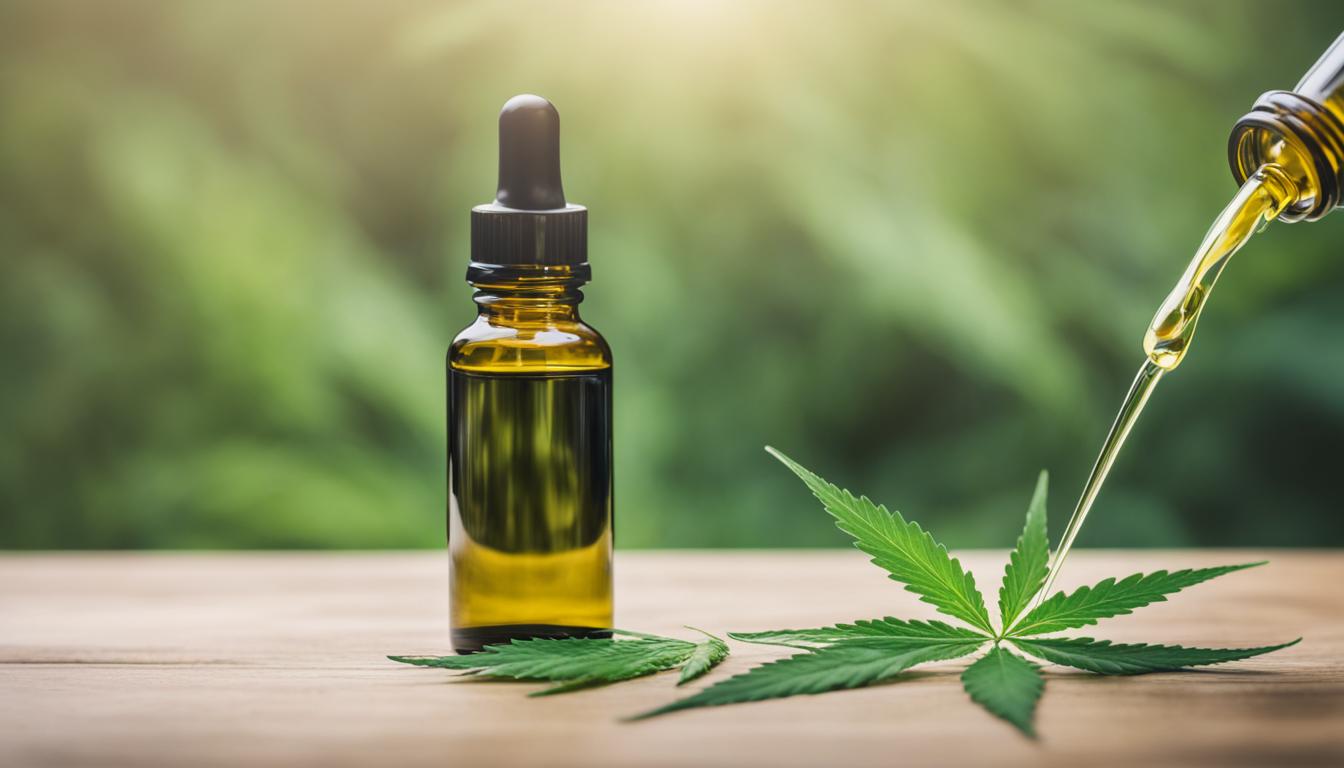
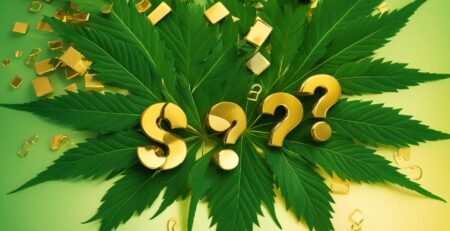

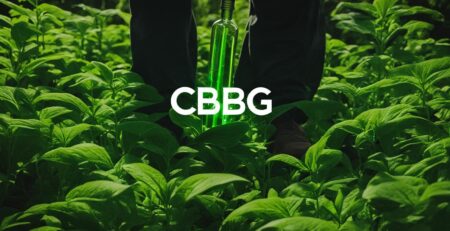

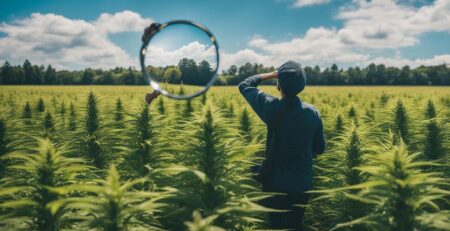



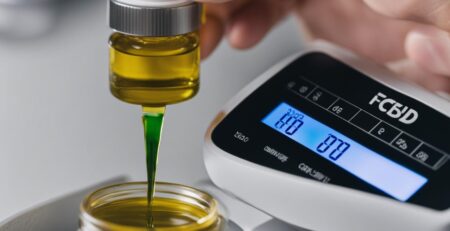

Leave a Reply